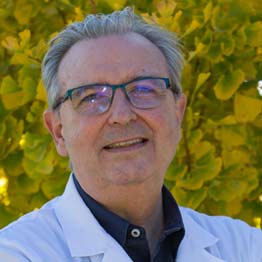G-BLEND
Green innovation for lignin and transformation of lignin and sewage sludge into optimized derivatives with biostimulant properties for plants.

This proposal seeks to develop innovative and sustainable biostimulants from underutilized waste materials, namely Kraft lignin and sewage sludge, using environmentally friendly processes, and to evaluate their agronomic efficacy under various abiotic stress conditions.
The project directly addresses critical global and EU-specific challenges in agriculture, such as environmental and economic inefficiencies in fertilizer use and the need for sustainable alternatives.
General objective
TO PRODUCE BIOSTIMULANTS
To explore and develop new strategies to produce sustainable biostimulants from underutilized wastes, specifically Kraft lignin and sewage sludge, through environmentally friendly processes, and to test their agronomic efficacy under thermal, water or salt stress conditions.
Specific objectives
LIGNINA KRAFT
design and/or optimization of environmentally friendly oxidation processes to selectively break down Kraft lignin for superior bioavailability and agronomic potential.
SOIL FERTILITY
To evaluate the agronomic impacts of lignin-derived humic substances, focusing on their ability to improve soil fertility, nutrient uptake efficiency and plant tolerance to abiotic stress.
OPERATING PARAMETERS
To investigate the influence of core topic operating parameters during thermal and/or alkaline hydrolysis of sewage sludge on the solubilization, hydrolysis and recovery of its protein fraction.
AGRONOMIC EFFECTS
To evaluate the agronomic effects of protein hydrolysates obtained from sewage sludge, with emphasis on their role in improving plant growth, stress resistance and soil microbial activity.
ADAPTED BIOSTIMULANTS
Formulate biostimulants adapted to specific crops and environmental conditions, integrating findings on humic substances and protein hydrolysates.
Principal Investigators

Marta Fuentes
BIOMA Institute

José María García-Mina
BIOMA Institute

Sergio Collado Alonso
University of Oviedo
BIOMA Institute researcher team

Duration:
01.09.2025 - 31.08.2029

Funding:
120,000 euros
Call for knowledge Generation Projects 2024 of the State research Agency (Ministry of Science, Innovation and Universities).
![]()
Location:
University of Navarra and University of Oviedo
core topic
WHY IS THIS project NECESSARY?
This project is necessary because it addresses several current environmental, agricultural and economic issues:
industrial and urban waste management : proposes solutions to valorize waste such as Kraft lignin and sewage sludge, reducing their accumulation in landfills and the associated environmental risks.
Dependence on chemical fertilizers: look for sustainable alternatives to synthetic fertilizers, whose overuse causes nitrate and phosphorus pollution (eutrophication, public health risks, etc.).
Agricultural sustainability and food security: responds to the need to improve crop resilience to climate change (drought, salinity, heat stress) and to maintain agricultural productivity in a sustainable manner.
Transition to a circular bioeconomy: promotes the use of waste to generate added value products, integrating scientific innovation with environmental and economic sustainability.
WHAT SOLUTIONS IS THIS CONTRACT STUDYING?
The contract studies innovative processes to transform industrial waste into sustainable agricultural biostimulants based on solutions such as:
Wet oxidation and enzymatic hydrolysis as methods to convert lignin and sewage sludge into humic substances and hydrolyzed proteins with bioactive properties.
Formulation and agronomic validation of new bioproducts that improve soil fertility, nutrient uptake and crop tolerance to abiotic stress.
Analysis of soil-microorganism interactions, contributing to the development of a regenerative and climate-resilient agriculture.
Integration of industrial waste into circular Economics models, creating a sustainable framework for resource recovery and waste reduction.
HOW DOES THIS CONTRACT AFFECT THE COMPANY?
The project has significant social, economic and environmental impacts:
Environmental impact: reduces pollution from the use of chemical fertilizers and the accumulation of residues, contributing to the protection of soil and aquatic ecosystems.
Social impact: improves food security by increasing crop resilience and productivity; promotes safer and more sustainable agricultural practices; and protects public health by reducing exhibition to harmful nitrogen compounds.
Economic impact: reduces costs in the management of industrial waste and in the purchase of imported fertilizers, favors the profitability of farms, especially small and medium-sized ones, and fosters the creation of employment and new opportunities in the bioeconomy, biotechnology and environmental management sectors.


